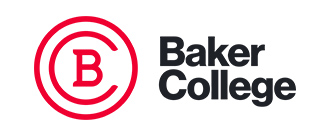Baker College's Bachelor of Science in Criminal Justice program is designed to look at the complex analysis and problem solving that is required of those who work in corrections and law. Read on to find out more about this program today.
<h2 id="section---FrequentlyAskedQuestions">Frequently Asked Questions</h2>
<h3 id="section---WhatKindOfProgramIsIt">What Kind of Program Is It?</h3>
<p>Baker College's Bachelor of Science in Criminal Justice program prepares you with the skills, tools, and methods needed to work in criminal justice-related careers at the federal, state, and local levels. Students learn the interrelatedness of police, corrections, and the courts as well as study the societal and ethical issues inherent in criminal justice topics. Students also study model ethical behavior and develop the skills necessary to respond to complex and dynamic situations appropriately. Other topics could include police and security practices, evidence gathering techniques, and investigation methods. In order to graduate from this program, students will be required to complete all their coursework, which includes work experience courses meant to offer students real-life knowledge.
</p>
<h3 id="section---WhatAreThePrerequisites">What Are the Prerequisites?</h3>
<p>Students interested in applying should have an interest in honing their problem-solving and communication skills for many complex and potentially high-stress environments. Because this is an online program, students should have regular access to a computer and the Internet. Though requirements may vary, students should have earned a high school diploma or equivalent.
</p>
<h3 id="section---WhatAreTheCourseRequirements">What Are the Course Requirements?</h3>
<p>This program consists of a total of 186 credit hours. Those credit hours are divided as follows: 68 credits for general education requirements and 118 hours for major requirements.
</p>
<p><u>Criminal Justice Major Requirements</u>
</p>
<p />
<table border="1"><tr><th>Course Code</th><th>Course Title</th></tr>
<tr><td>CRJ 101</td><td> Introduction to Criminal Justice</td></tr>
<tr><td>CRJ 106</td><td> Introduction to Corrections</td></tr>
<tr><td>CRJ 111</td><td> 9-1-1 Telecommunications I</td></tr>
<tr><td>CRJ 112</td><td> 9-1-1 Telecommunications II</td></tr>
<tr><td>CRJ 121</td><td> Correctional Facilities</td></tr>
<tr><td>CRJ 131</td><td> Client Relations</td></tr>
<tr><td>CRJ 141</td><td> Criminology</td></tr>
<tr><td>CRJ 151</td><td> Legal Issues in Corrections</td></tr>
<tr><td>CRJ 211</td><td> Interpersonal Communication and Conflict Management</td></tr>
<tr><td>CRJ 221</td><td> Interviewing, Investigations and Report Writing</td></tr>
<tr><td>CRJ 231</td><td> Principles of Policing I</td></tr>
<tr><td>CRJ 232</td><td> Principles of Policing II</td></tr>
<tr><td>CRJ 261</td><td> Retail Security</td></tr>
<tr><td>CRJ 281A</td><td> Criminal Justice Work Experience I</td></tr>
<tr><td>CRJ 301</td><td> Juvenile Justice Concepts</td></tr>
<tr><td>CRJ 311</td><td> Ethical Issues in Criminal Justice</td></tr>
<tr><td>CRJ 321</td><td> Criminal Law</td></tr>
<tr><td>CRJ 331</td><td> Cybercrime Investigations</td></tr>
<tr><td>CRJ 341</td><td> Introduction to Forensic Science</td></tr>
<tr><td>CRJ 351</td><td> Evidence Collection and Procedures</td></tr>
<tr><td>CRJ 361</td><td> Organized Crime and Youth Gangs</td></tr>
<tr><td>CRJ 371</td><td> Criminal Courts</td></tr>
<tr><td>CRJ 421</td><td> Evidence-Based Practices</td></tr>
<tr><td>CRJ 431</td><td> Terrorism and Homeland Security</td></tr>
<tr><td>CRJ 441</td><td> Organizational Leadership in Criminal Justice</td></tr>
<tr><td>CRJ 481A</td><td> Criminal Justice Work Experience II</td></tr>
<tr><td>HSC 102</td><td> BLS Provider Training and First Aid</td></tr>
<tr><td>HUS 201</td><td> Substance Abuse</td></tr>
<tr><td>PSY 311</td><td> Abnormal Psychology</td></tr>
<tr><td>WRK 291B</td><td> Professional Career Strategies</td></tr>
<tr><td><b>Select One Course from the Following:</b></td><td /></tr>
<tr><td>CRJ 171</td><td> Defensive Tactics</td></tr>
<tr><td>CRJ 181</td><td> Community Corrections</td></tr>
</table><p><u>General Education Requirements</u>
</p>
<p />
<table border="1"><tr><th>Course Code</th><th>Course Title</th></tr>
<tr><td>ELECT 111A</td><td> Scientific Inquiry Elective</td></tr>
<tr><td>ELECT 131A</td><td> Global and Cultural Perspectives Elective</td></tr>
<tr><td>ELECT 131B</td><td> Global and Cultural Perspectives Elective</td></tr>
<tr><td>ELECT 161A</td><td> Computer Literacy Elective</td></tr>
<tr><td>ELECT 161B</td><td> Computer Literacy Elective</td></tr>
<tr><td>ELECT 161C</td><td> Computer Literacy Elective</td></tr>
<tr><td>ENG 101</td><td> Composition I</td></tr>
<tr><td>ENG 102</td><td> Composition II</td></tr>
<tr><td>INF 161</td><td> Technology and Society</td></tr>
<tr><td>MTH 108</td><td> College Mathematics I: Reasoning and Application</td></tr>
<tr><td>MTH 109</td><td> College Mathematics II: Algebra and Trigonometric Concepts</td></tr>
<tr><td>SOC 201</td><td> Sociology</td></tr>
<tr><td>SOC 301</td><td> Social Problems</td></tr>
<tr><td>SOC 321</td><td> Cultural Diversity</td></tr>
<tr><td>SPK 201</td><td> Oral Communication</td></tr>
<tr><td>WR I 115</td><td> Workplace Communication</td></tr>
<tr><td>WR I 301A</td><td> Report Writing</td></tr>
<tr><td><b>Select One Course from the Following:</b></td><td /></tr>
<tr><td>PSY 101</td><td> Human Relations</td></tr>
<tr><td>PSY 111</td><td> General Psychology</td></tr>
<tr><td><b>Select Once Course from the Following:</b></td><td /></tr>
<tr><td>SPK 211</td><td> Group Dynamics</td></tr>
<tr><td>SPK 401</td><td> Presentational Speaking</td></tr>
</table><h3 id="section---WhatCouldIDoAfterIGraduate">What Could I Do After I Graduate?</h3>
<h4 id="section---CareerOpportunities">Career Opportunities</h4>
<p>Graduates of this program could be able to seek entry-level employment in a number of different government offices or public service organizations. Opportunities could also be pursued in correctional facilities or the courts. These positions could rely on the analytical, organizational, and problem-solving skills emphasized in this Baker College program.
</p>
<p>Possible career opportunities include but are not limited to:
</p>
<ul><li>County Sheriff's Deputy
</li><li>Probation Officer
</li><li>Corrections Officer
</li><li>Court Administrator
</li><li>Criminal Investigator
</li><li>Domestic Violence Shelter Worker
</li></ul><h4 id="section---AdvancedDegrees">Advanced Degrees</h4>
<p>After completing this program, students may decide to continue their criminal justice studies by pursuing a master's degree. A higher-level degree may allow a student to specialize in a specific area, such as administration or policy, or may expand upon criminal justice as a whole. For certain jobs related to working directly with criminals or victims, additional certification or degrees may be required.
</p>
<p>Relevant higher-level degrees include but are not limited to:
</p>
<ul><li>Master of Arts in Criminal Justice
</li><li>Master of Science in Crime Analysis
</li><li>Master of Arts in Public Policy
</li><li>Master of Business Administration in Criminal Justice
</li><li>Master of Science in Criminal Justice Leadership
</li><li>Master of Science in Justice Administration</li></ul>


.svg)


